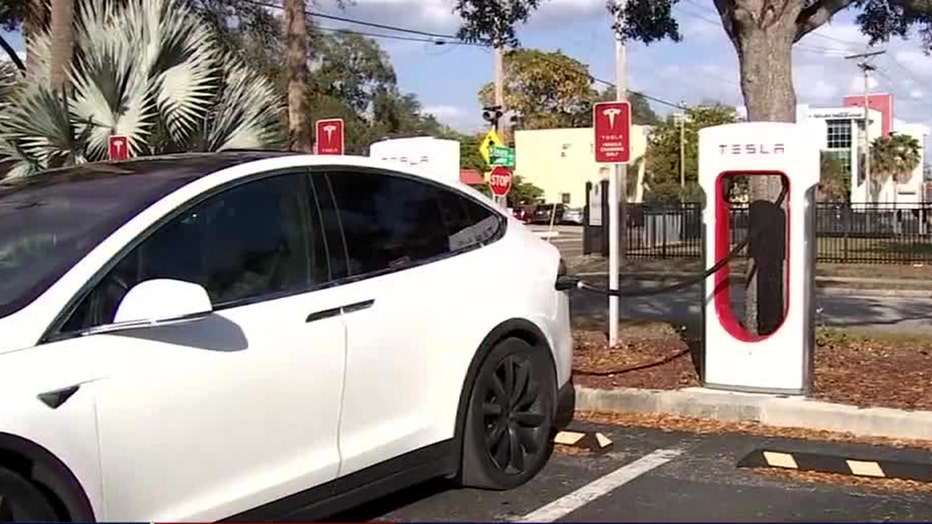Electric car infrastructure needs rapid charge to keep up with demand, but who pays the bill?
TAMPA, Fla. - Florida ranks second in the nation for the amount of electric vehicles on state roadways. The EV industry is projected to see massive growth, and a battle is brewing in the Sunshine State over who should control the charging infrastructure.
There are more than 58,000 electric vehicles in Florida, and according to the U.S. Department of Energy, Florida has the third-largest EV charging infrastructure in the country.
"Within 20-yearsz, nearly two out of every three cars sold could be EV," said State Representative David Borrero.
He is proposing legislation that would make sure Florida drivers can recharge their car batteries at a variety of charging stations. House Bill 737 was before the Tourism, Infrastructure and Energy Subcommittee Tuesday.
"Florida needs to make sure that the laws we have in place allows for competition and allow for private companies to operate provide electricity to drivers in Florida," Borrero said.
The bill calls for the Florida Public Service Commission to come up with rules that would encourage innovation, competition and private investment while expanding charging equipment and networks across the state. There are currently around 6,100 charging stations across the state.

The proposal also says electric utility companies would have to stop passing the cost of installing charging stations onto its customers by 2024, a practice that is currently happening through utility rate increases.
"In other words, it makes sure that you and I, as homeowners, as residential customers of electricity, don’t have to pay the costs of EV charging stations," said Borrero.
House Bill 737 is now headed to the Commerce Committee. The Senate version has been in the Transportation Committee since last month.
Last week, top White House officials announced they will be providing states with $5 billion to help fund a national EV charging network.
"This is us partnering with the states and the states partnering with the private sector, filling in some of those gaps and making sure that we have a strong backbone across our highway system," explained U.S. Secretary of Transportation Pete Buttigieg.
Florida could see about $29 million from the pot, but must submit a plan to the feds by August on how the state would use the cash.
Agriculture Commissioner Nikki Fried is urging FDOT to lean on the Florida Electric Vehicle Roadmap developed by her office in 2020. She says the locations of charging stations needs to be a key consideration moving forward, especially in rural areas and along evacuation routes.


